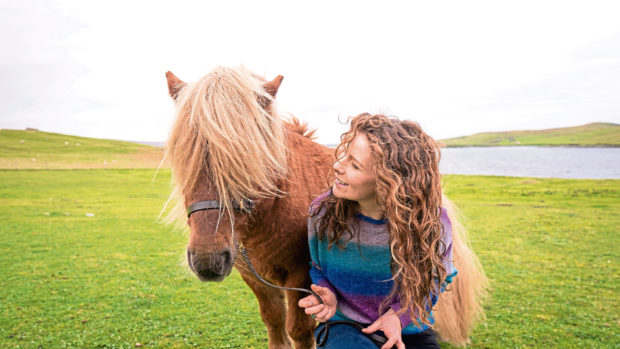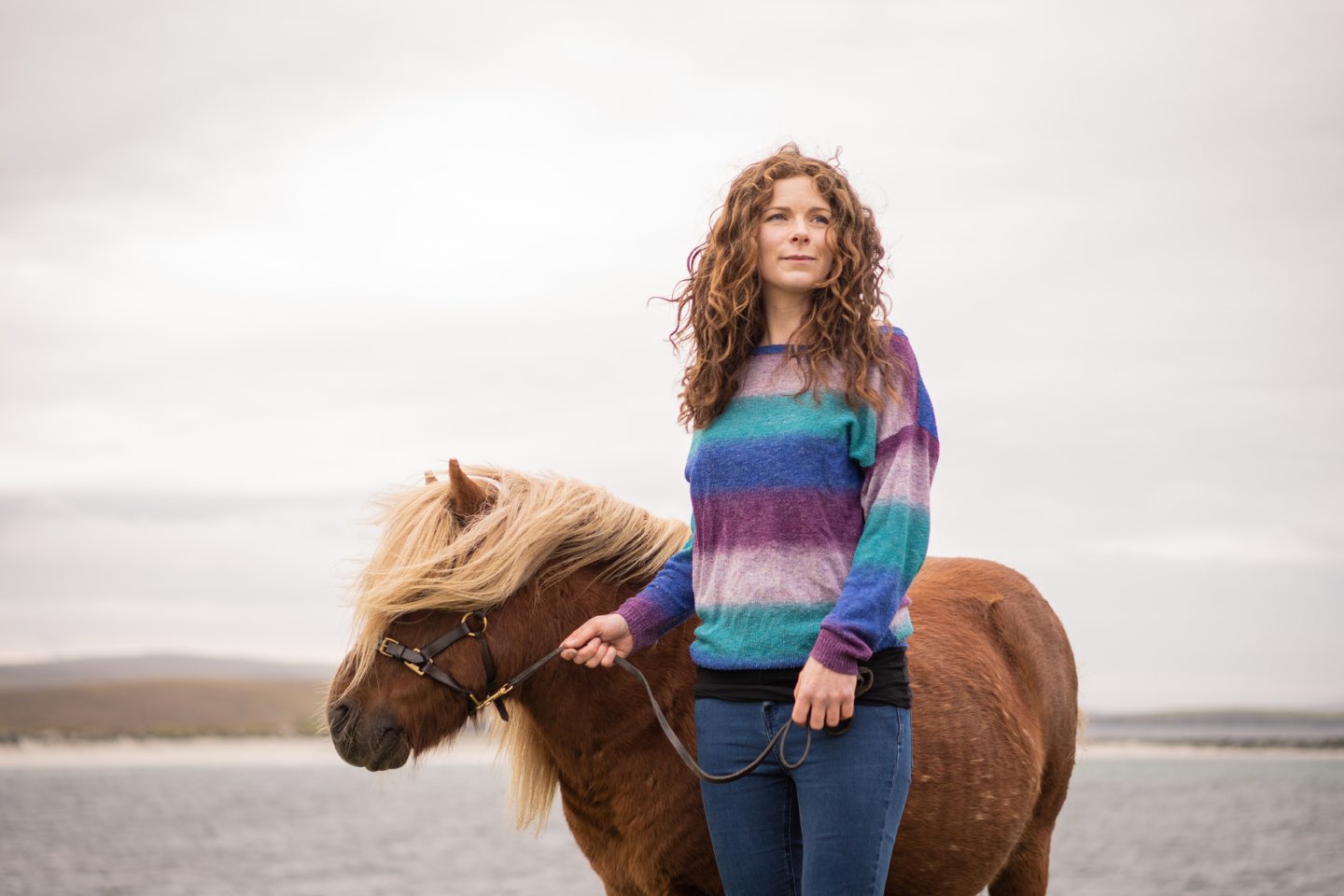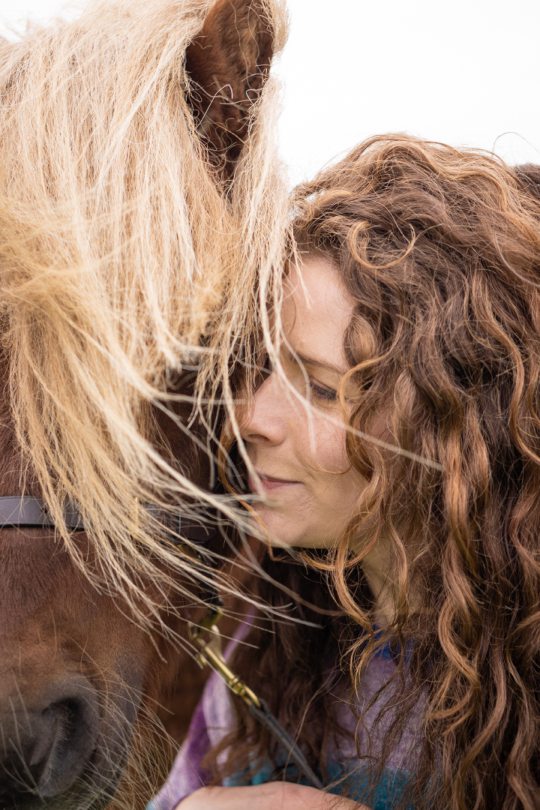
They might be short but they live a long time and now an island researcher has revealed the secret of Shetland ponies’ happy lives – hard work.
Anthropologist Catherine Munro looked at the ponies, their relationship with people and how domesticity has changed them.
And, she revealed, after moving to Shetland to study the little ponies, she has fallen in love with the islands and has made her home there.
The Shetland icons have been on the northern islands since the Bronze Age, about 2000 BC. And Aberdeen University doctorate student Catherine, 37, says the ponies evolved to thrive on a cold, wild, storm-bashed climate.
“Size for size, they can hold their own with the strongest horses like Clydesdales and Shires, and were the main form of transport here until road networks were built 150 years ago,” Catherine said.
“The ponies evolved as small horses to allow them to shelter behind peat banks and sneak into hills and mounds. Some people are worried they might evolve to become only pets and they might forget they are working animals.
“Being a working animal is part of their history and story and who they are. They are happiest when they are carrying children or small adults and their thick winter coats allow them to survive happily outside in the worst of weather.
“Treated well, they can live 30 or 40 years and there are reports of 50-year-old Shetland ponies with owners who had them as children.”

Catherine, who studied the ponies and their relationship with humans for her PhD, also looked at the ponies’ impact on the islands, their landscapes, and their inhabitants. She said: “I looked at the domestication of ponies – the way we live with animals is an important part of the way we feel at home in a place.
“In an interconnected world, the way we live with animals can have global implications.
“How we make our homes and local landscape affects our planet. Much of the discussion on climate change focuses on the negative effects of farming but there are positive ways to live with domestic animals.
“Relationships with domestic animals here are not characterised by domination and exploitation or intensive farming. Instead there is a kinder and more hopeful way of being at home with, and making a home for, animals. We can learn a lot from the way that people have lived with animals in remote locations.”
She said hailed the ponies’ impact on everyday life, and loved how they have become a big part of the islands’ charm.
“A lot of people have the ponies out on the hill and they colour the way we feel about the landscape,” she said.
Studying them even meant, for Catherine, adopting a mother and her foal. “The youngster was born out of season and I volunteered to help a friend by taking care of them. I had suffered a miscarriage and it was therapeutic. Part of my recovery,” added mum-of-two Catherine.
“Some people might take their work home, but few adopt a mare and her foal. They were a real joy to care for and nurture, though the mum was a very capable one.
“It is difficult to say no and, in truth, it was no hardship, because Shetlands are adorable.”
“However, they need to evolve naturally and not become pampered. They are working animals and very happy to be so,” she added.

Catherine moved to Shetland to study for her PhD. “The idea was for my husband Stephen and me to stay for the duration of the PhD but we are making it our home.
“It’s a wonderful place to bring up children.
“I am originally from the south-west of Scotland but it’s so easy to fall in love with the Shetland Isles.”
While Shetland may be the home of the sturdy little horse, they are hugely popular in Holland after visiting fishermen to Shetland started taking them home from the 17th Century onwards. One of the initial fishing boat’s doctors prescribed exercise for the crew and pony races became popular.
Sadly, their size and strength also meant that they were perfect animals for working in mines in the United States and other countries.
Many would be stabled underground and only brought to the surface for sunlight in summer. Stallions between four and 12 years old were usually chosen for the long, hard shifts in dimly lit mines.
Catherine said the ponies had also given the Shetland Islands an international identity.
She said: “One of the most amazing things about the Shetland pony is that, all around the world, people’s first horse is often the Shetland pony and they all originate from this small group of islands between the Atlantic and North Sea.
“The ponies are fantastic little ambassadors for Shetland.”

Enjoy the convenience of having The Sunday Post delivered as a digital ePaper straight to your smartphone, tablet or computer.
Subscribe for only £5.49 a month and enjoy all the benefits of the printed paper as a digital replica.
Subscribe